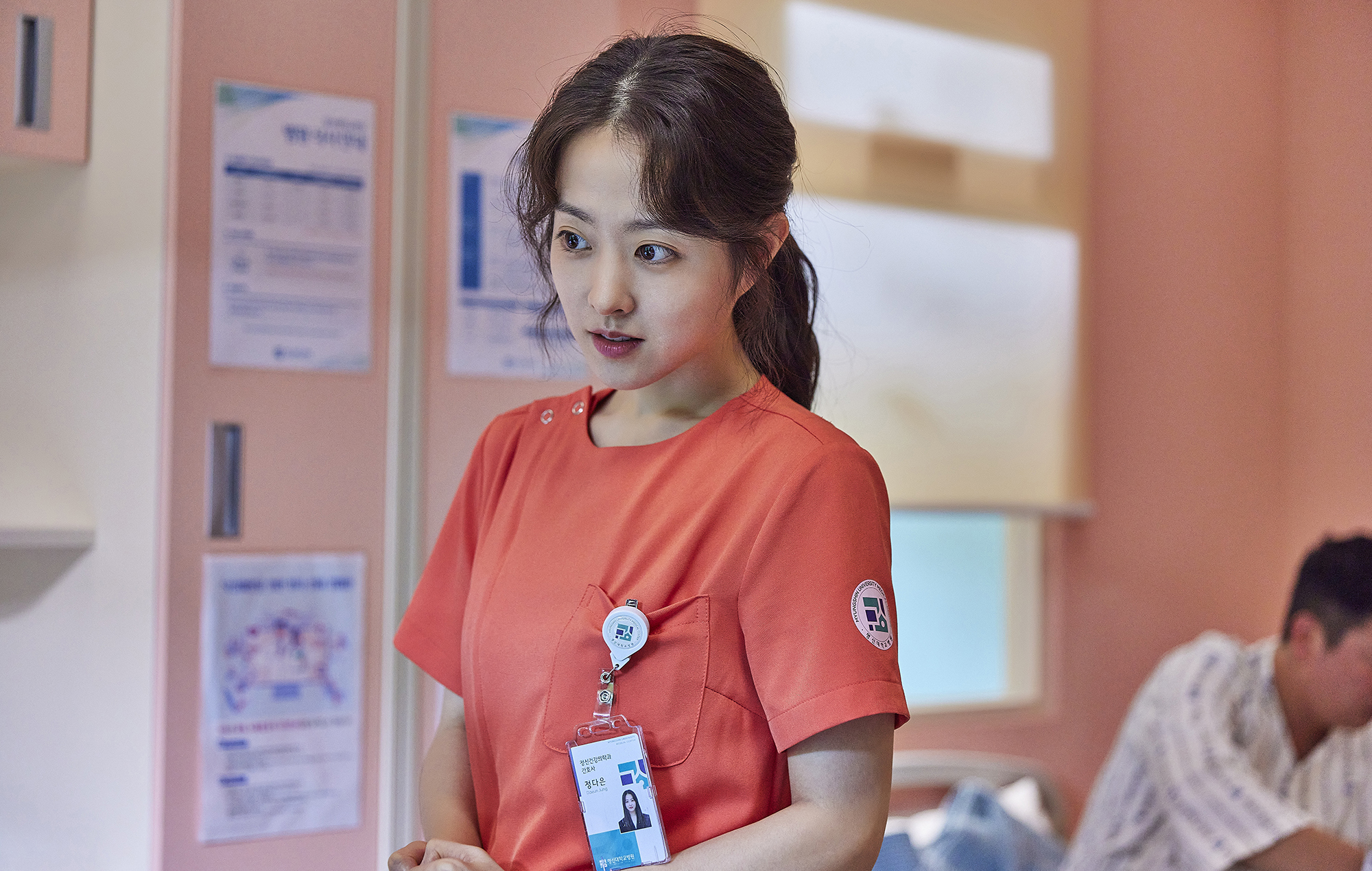“It’s a sickness, not a sin,” head nurse Song Hyo-jin (Parasite’s Lee Jung-eun) says during a particularly emotional scene in Netflix’s newest original K-drama, Daily Dose of Sunshine. “That’s what a mental illness is like. It’s an unpredictable disorder that can strike anyone, anywhere at any time.” She reassures newcomer Jung Da-eun (Park Bo-young), who sits in her office with her head down from the disappointment with herself for making mistakes.
READ MORE: ARTMS’ HeeJin on her solo album ‘K’: “It was truly a golden experience”
Da-eun is the psychiatric ward’s newest nurse, having come from Internal Medicine, who doesn’t have a clue of how she can best treat the patients in her new department. As a nurse who is accustomed to supporting patients with more physical illnesses, Da-eun’s first days in the Psychiatric Unit have proven to be quite the learning curve. She struggles to adjust her work and mindset for new patients who behave in ways she doesn’t always understand.
Luckily for Da-eun, she is under the expert guidance of Song Hyo-jin and the other psychiatric nurses, who do their best to support and teach her. She also meets a doctor from the proctology department, Dong Go-yun (Yeon Woo-jin), who frequently visits the unit due to his concern over his habit of cracking joints. With the help of their moral support, Da-eun – after countless trials and errors – eventually finds her sweet spot in the ward’s chaos.
Psychiatric care and stigma surrounding it has always been a great albeit unspoken issue – not just in South Korea, but all over the world. Though, South Korea, in particular, has seen the most silent sufferers, as the nation ranked the highest in terms of suicides per capita. Mental health in Korean media has always been represented through a skewed lens informed by stereotypes, but Daily Dose of Sunshine handles it with the utmost care, unlike anything we’ve ever seen from K-dramas.
The series is deeply emphatic and informative, humanising patients who are faced with different disorders ranging from schizophrenia and depression to panic disorder and obsessive compulsive disorder. It is incredibly refreshing to finally have a Korean drama that doesn’t relegate them to violent and antagonistic stereotypes, but rather as people who are as multi-dimensional as anyone else – a whole lot more than what their illnesses paint them to be.
Park Bo-young, as our eyes and ears, delivers the nuances of her character with grace. It is no easy feat to balance Da-eun’s characterisation as someone who always seeks to understand despite her own preconceived notions, and as someone renowned for her gentleness and optimism who also faces fears, doubts, guilt and shame. Park has long proved her mettle as a skilled actress, but her performance in Daily Dose of Sunshine may be one of her best yet.
‘Daily Dose of Sunshine’. Credit: Cr. Yang Hae Sung/Netflix
The beauty of the series also lies in its writing. Every new obstacle is dealt with the genuine goal of informing, educating and eliciting empathy. As a series set largely within the walls of a psychiatric ward, it never once feels like a place filled with despair but instead one meant to foster true healing. Daily Dose of Sunshine excels in balancing the emotional aspects of the show (of which there are plenty) with the more lighthearted ones, which make it all the more emotionally fulfilling.
Mental illnesses may not present as wounds on flesh, but that does not make them any less tangible, nor are they harder to bounce back from. This new K-drama serves as a beacon of hope and opportunity for more to accept the reality of mental health, and Daily Dose of Sunshine is a beautiful testament to this heartfelt message.
Daily Dose of Sunshine is available to stream exclusively on Netflix
The post ‘Daily Dose of Sunshine’ review: an earnest, destigmatising portrayal of mental health appeared first on NME.




